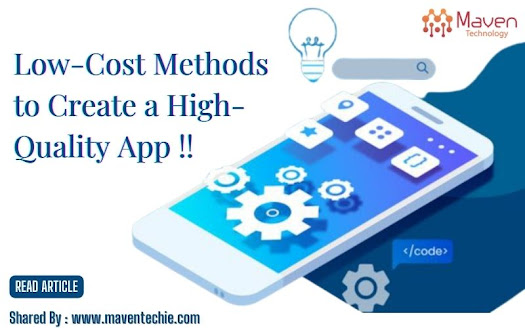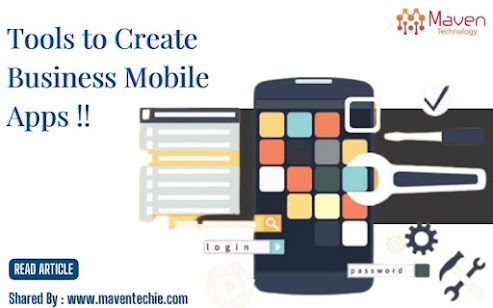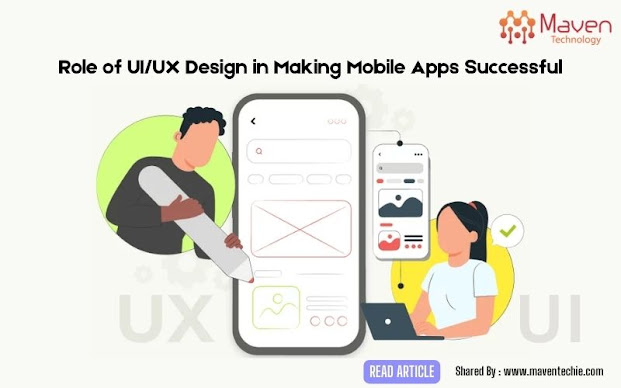How to Build Affordable Business Mobile Apps in a Shorter Time?
With each passing day, more and more people are opting for mobile app development as a cost-effective way to establish their presence in the market. If you plan to do the same, it is imperative that you understand what goes into the process to make it happen without incurring excessive upfront costs.
To successfully launch an app cost-effectively, you need to go through a detailed breakdown of the entire low-cost mobile app development process.
From building your first app to launching on the App Store and Google Play, this guide will take you through the entire low-cost mobile app development process. A complete guide on how to start your own low-cost business mobile app and launch your first app.
The Trends You Need to Know :
- The global market size for mobile app development was valued at USD 206.85 billion in 2022, with an expected CAGR of 13.8%.
- The next 3 years will be a boom time for mobile apps and their related businesses.
- By then, the mobile app industry will generate more than $613 billion.
- The App Store currently houses over 2.22 million apps and this number is expected to rise. In a similar vein, the Google Play Store offers 3.48 million apps to choose from.
- Statistics showed that the global app revenue is expected to grow by over 25% by 2030.
Creating an amazing app is no easy feat. It requires a lot of investment, both in terms of time and money. Thankfully, several methodologies can help businesses create low-cost apps without compromising on quality. In this blog post, we will explore some of these methodologies and how they can benefit your business.
Here’s a breakdown of the mobile app development process to show you how much it lowered developmental costs.
Agile Methodology :
With the growing number of mobile apps, you need to deliver value through the right channel. Agile methodology is a scalable and flexible approach that lets you get features out faster, scale easily, and focus on your core business goals.
Agile is the best option for you if you want to design and develop a mobile application that is user-friendly, easy to use, and updated as per the latest trends. It keeps focus on the app’s core functionality while iterating as per user feedback. Hence, it induces a Mobile App Development Services in less time and at a lesser cost. It is made possible by using the Scrum framework for teams working in close cooperation, to achieve maximum results within a given period.
Scrum is widely used in the agile methodology to handle complex projects efficiently. With this approach, the app development process is divided into small, manageable tasks called sprints. This allows for continuous improvement and feedback throughout the development cycle, ensuring that the app meets the requirements while keeping costs in check.
Mobile application development is not just about building an app, but it’s also about delivering a great user experience. With the best practices of agile development, you can ensure your apps are always up to date with the latest features and functions.
Minimum Viable Product, or MVP Approach :
MVP stands for a minimum viable product. Obviously, MVP should followed by its low-cost development. That means spending the least amount of time and resources building this bare-bones version. It helps you figure out the viability of an idea and provides an accurate picture of what your app will look like.
An MVP is a small but functional version of your app. It should contain all the core features essential for communicating the main app idea, while still providing value to users. It’s one of the core features that helps you determine whether users will embrace your idea and provide honest feedback before you make any big changes to your product.
Furthermore, An MVP is a quick and easy way to test out your app idea before you go into the full-scale development process.
As MVP approach facilitates developing an app with the core features and functionalities required for its initial release. By focusing on the most essential elements, businesses can reduce development costs and time-to-market. This methodology allows for early user feedback, helping to identify potential improvements and prioritize future updates. By launching a basic, low-cost app initially, businesses can test the market and gather valuable insights before investing in additional features.
Hybrid App Development :
Hybrid app development combines elements of both native and web-based apps, providing a cost-effective solution. Overall, Hybrid App Development implies building a single app for device compatibility and OS-friendly, such as Android, iOS, and Windows.
Hybrid apps are created using web technologies like HTML, CSS, and JavaScript, and then enclosed in a native container. This approach allows businesses to reach users across multiple platforms (iOS, Android, etc.) without the need for separate development teams or extensive resources. By leveraging hybrid app development, businesses can significantly reduce costs while still delivering a seamless user experience.
Features of Hybrid Apps :
Hybrid app features have :
The device's ability to function seamlessly without being connected is a game-changer.
Imagine having seamless access to all your mobile files and folders right at your fingertips! That's exactly what integration with the mobile device's file system can offer by a Hybrid app development process to its developers.
Incorporating web-based services.
A browser built-in infrastructure to enhance access to dynamic online content.
Cloud Based Apps :
Businesses are now embracing digital transformation and moving their IT infrastructure to the cloud. Cloud-based solutions not only provide easy access to applications and data all over the world but also help businesses optimize IT spending by reducing costly operations such as data center maintenance and management.
The era of the cloud is upon us. By adopting the cloud, companies can save up to 60% on their data center costs, while apps are being developed faster and more efficiently.
Cloud-based Mobile App development and testing has taken off and has been embraced by most business processes to encode large data center costs. By using cloud systems, businesses could be able to save money on data center hardware and software maintenance costs, thereby helping cut down upfront business expenses.
Cloud deployment offers a flexible and cost-effective way to manage app development, testing, and deployment. This means businesses can build and test apps faster, making them more agile, responsive, and customer-centric.
Cutting down on data center costs, Mobile App Developers can now access cloud services from anywhere. This ensures better productivity and collaboration among team members. The latest inclusion in mobile app development technology has allowed companies to avoid large data center costs as well as improve productivity.
Open-Source Frameworks and Tools :
Open-source frameworks and tools offer a cost-effective way to develop business apps. These frameworks provide pre-built components and libraries, reducing the need for extensive coding from scratch. By leveraging the existing resources and collaborative communities of open-source projects, businesses can save time and money on development. Additionally, open-source solutions often have a large user base, ensuring ongoing support and security updates.
The use of these Methodologies such as agile development, the MVP approach, hybrid app development, and open-source frameworks and tools, can empower businesses to create low-cost, high-quality mobile apps. By adopting these methodologies, businesses can optimize their development process, save resources, and launch apps that meet the needs of their customers while remaining within budget constraints.
React Native : A popular JavaScript framework for building native mobile apps for iOS and Android using a single codebase.
Flutter : A UI toolkit developed by Google that allows for the creation of beautiful and high-performance native apps for multiple platforms using a single codebase.
Xamarin : A Microsoft-owned open-source framework that enables the development of native mobile apps for iOS, Android, and Windows using the C# programming language.
PhoneGap/Cordova : An open-source framework that allows developers to build mobile apps using web technologies (HTML, CSS, and JavaScript) and package them as native apps for various platforms.
Appery.io : A cloud-based platform that offers a visual development environment for building cross-platform mobile apps for iOS, Android, and Windows Phone.
Ionic : A framework that combines Angular JS, HTML5, CSS, and Sass to create hybrid mobile apps for multiple platforms.
Adobe XD : A design and prototyping tool that allows for the creation of interactive app designs and user experiences before development begins.
Firebase : A comprehensive mobile development platform by Google that provides robust backend services, analytics, and cloud storage for app developers.
Visual Studio App Center : A developer toolset provided by Microsoft that enables collaborative development, continuous integration, and app distribution for iOS, Android, and Windows apps.
AWS Mobile Hub : Amazon Web Services platform that offers a suite of tools and services for developing, testing, and deploying scalable mobile apps.
IBM MobileFirst : IBM's mobile app development platform that provides tools, services, and frameworks to create enterprise-level mobile apps with security and analytics capabilities.
These tools offer a range of features and functionalities to cater to different development needs and budgets. It's important to explore and evaluate each tool based on the specific requirements of your business mobile app project.
Our Collaboration and Transparency Throughout the Development Process : Regular communication and feedback loops ensure that businesses are involved and informed every step of the way, resulting in a final product that aligns with their vision.
Client satisfaction is paramount to Maven Technology, and they go above and beyond to deliver exceptional customer service. Their attention to detail, timely delivery, and ongoing support set them apart from other agencies. They understand that a successful mobile app is not just about the development phase; it requires continuous improvement, updates, and maintenance to stay relevant in the ever-evolving digital landscape, and Maven Technology is there to support their clients throughout their app's lifecycle.
Conclusion :
Maven Technology stands out as one of the best mobile app development agencies in the industry. With their expertise, dedication, and commitment to excellence, they have proven themselves to be a reliable partner for businesses seeking to create high-quality mobile apps.
Maven Technology excels in providing innovative and customized solutions to meet the unique needs of its clients. Their team of experienced developers, designers, and strategists work closely with businesses to understand their objectives and deliver mobile apps that exceed expectations.
The agency's commitment to staying up-to-date with the latest technologies and trends ensures that the apps they develop are cutting-edge, user-friendly, and feature-rich. They have a deep understanding of different app development methodologies and tools, allowing them to choose the most suitable approach for each project.
In summary, if you are looking for a reliable and top-notch mobile app development agency, look no further than Maven Technology. With their expertise, collaborative approach, and focus on client satisfaction, they are well-equipped to turn your ideas into reality and deliver the best mobile app solution for your business.





Comments
Post a Comment